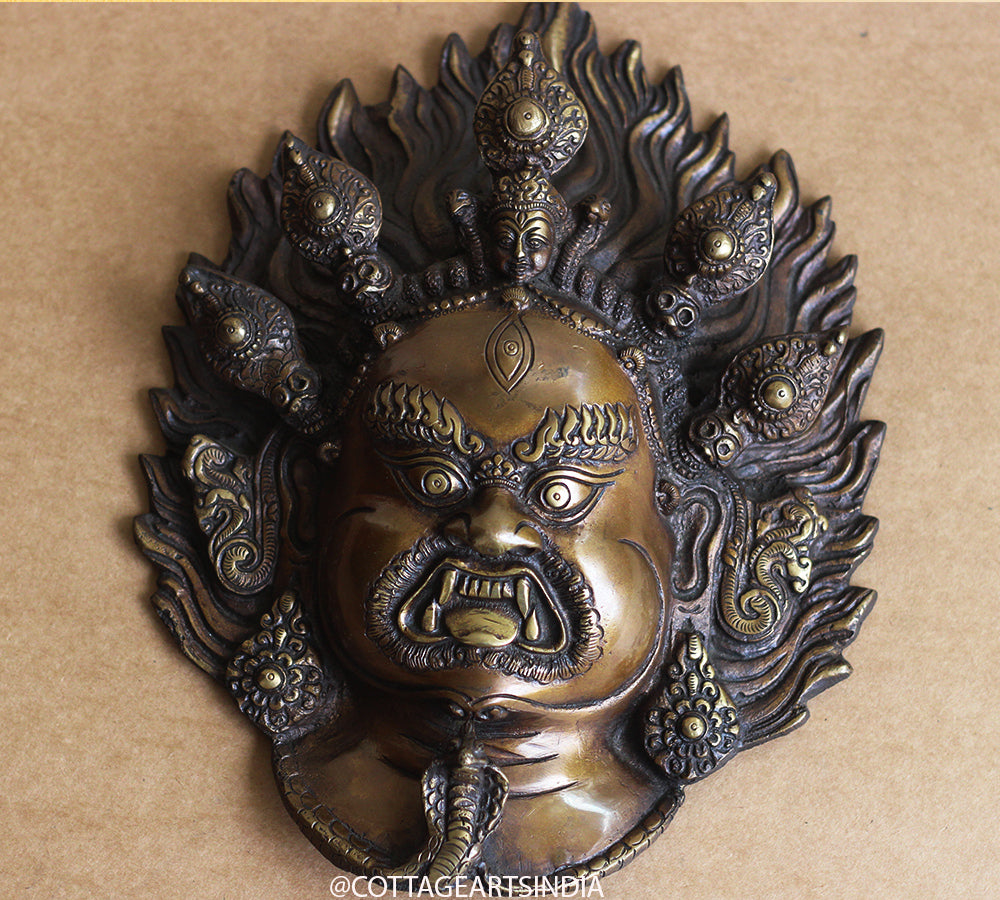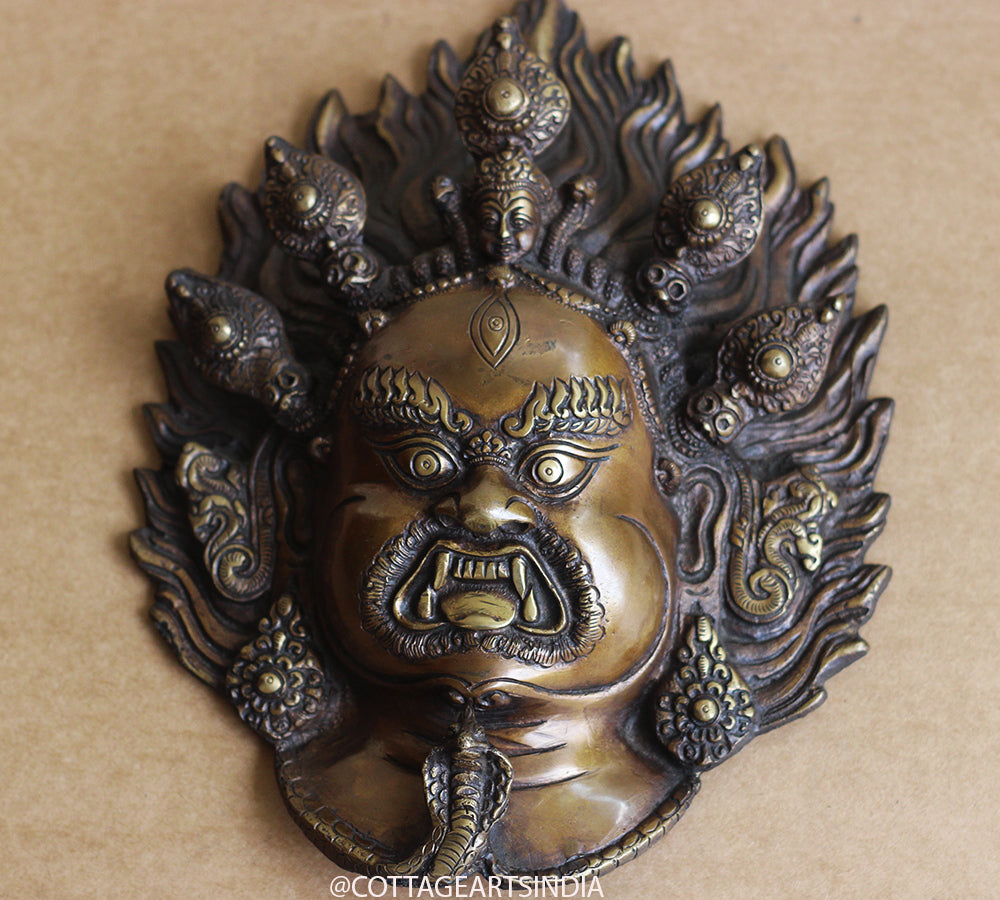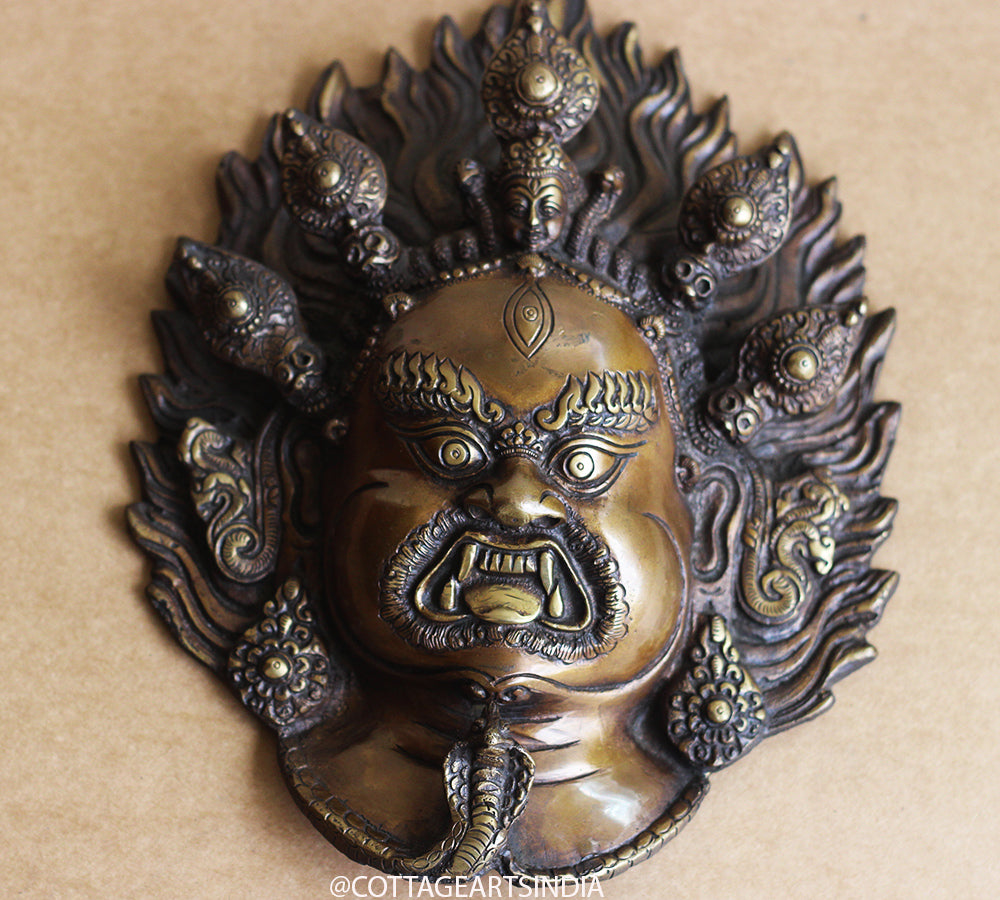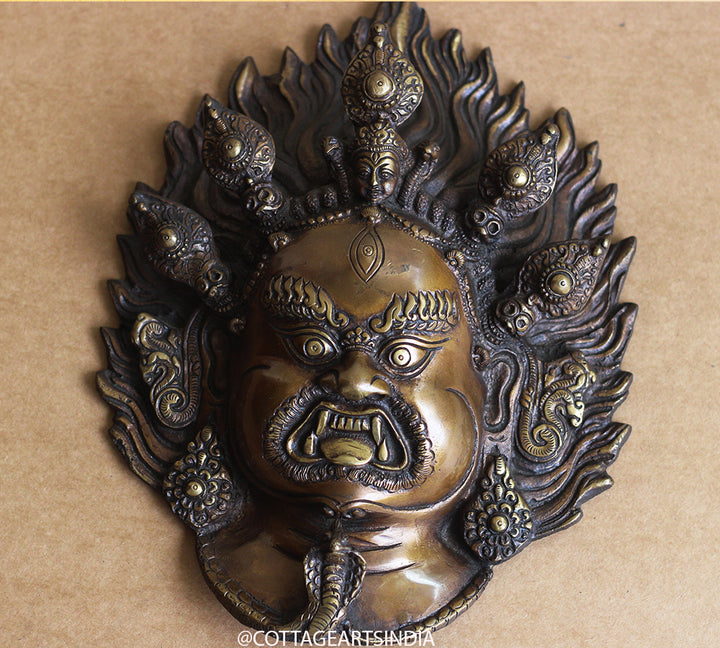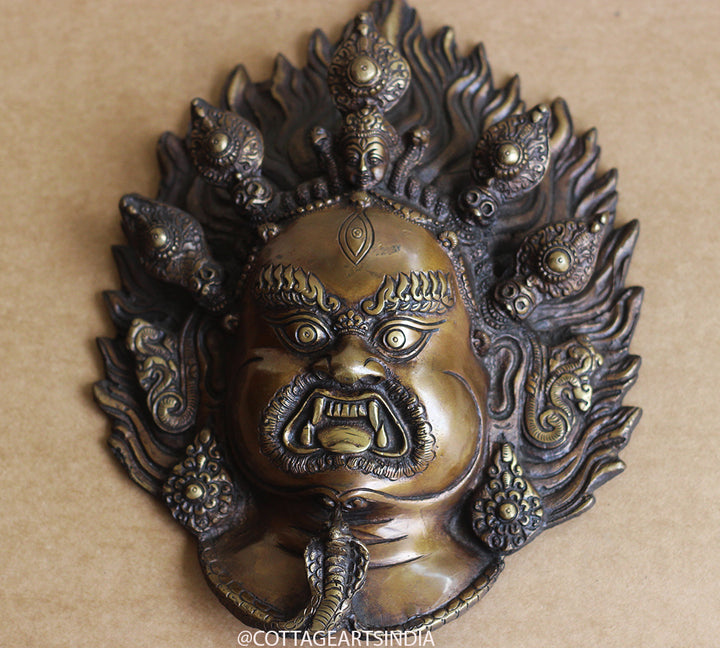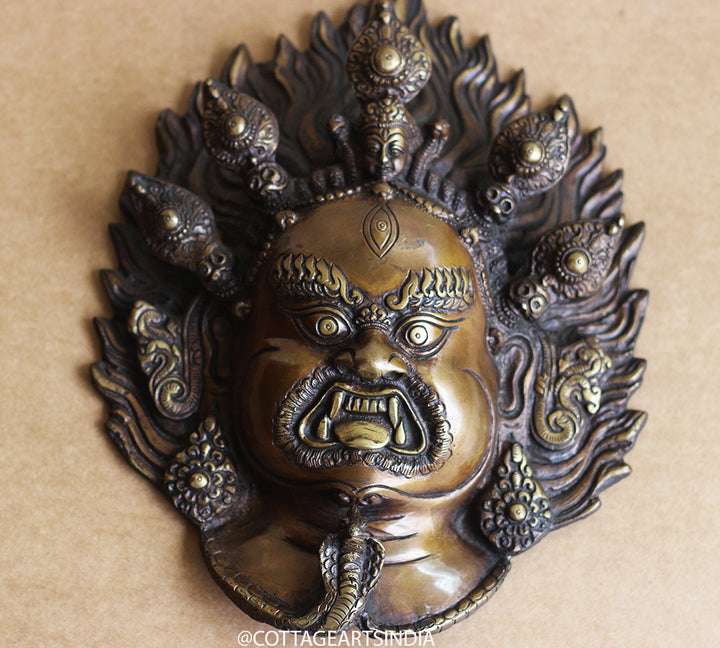Brass Bhairava Mask Wall Hanging
- Free shipping available PAN India
Dimensions
Height : 12.5 inches ,Width : 9 inches ,Depth : 3 inches
Weight
4 Kg
Material
Solid Brass
Product Description
Brass Bhairava Mask in its profound glory for keeping the negative energies away from your abode.Bhairab, also called Bhairava, is a form of Lord Shiva, similar to an incarnation. He's often associated with power and strength, serving as a divine protector. Having a Bhairab mask near the entrance of a house is believed to ward off negative energy and safeguard the people living there
Instructions For Care
Ensure the lasting beauty of this idol with simple care – gentle cleaning with a soft, dry cloth is recommended to preserve its divine radiance.. DO NOT use harsh chemicals to clean. You can apply a thin coat of any natural oil by gently rubbing it throughout the statue with a soft cloth in order to maintain its luster.
Timelines for dispatch
2-3 working days rom the receipt of order.
Delivery Date
5 to 7 days from date of dispatch . In case of urgent delivery please contact us on whatsapp.
Disclaimer :
1. Handcrafted products generally have slight imperfections, unmatched by mass production. Embrace the charm of handmade for authenticity and a connection to the artisan's skill.
2. Any prop or accessories used for photography are not included with the product .
Manufacturers and Retailers of Indian Handicrafts.
Wall Decor | Table Decor | Brass Idols | Wooden Artware and More
Shipping and Returns :
- All pre- paid orders above INR 2000 qualify for free shipping in India .
- Delivery and handling charges - INR 200 on orders below INR 2,000 in India
- COD order shipping charges available on checkout.
- COD orders accepted up to INR 22000.
- Incomplete or wrong address and phone number will result into return of the shipment back to us. Customers will have to bear the cost of both - return as well as reshipping charges.
- International Shipping charges are calculated at checkout.
- International Shipping to USA customers , there is no customs or import duty in their country. International shipping to Canada, UK, Europe and other countries - customers are responsible for VAT/GST and customs duty.
- UK, Europe customers , there is minimum value order requirement . For UK minimum order value is GBP135 and for Eurozone - EUR 150 , including shipping charges.
Please check our Shipping Policy for further details.
This item is Non-Returnable and only eligible for exchange in an unlikely event of Damage, Defective, Size Issues, Wrong product delivered to you.
Please Check our Refund Policy for further details.


